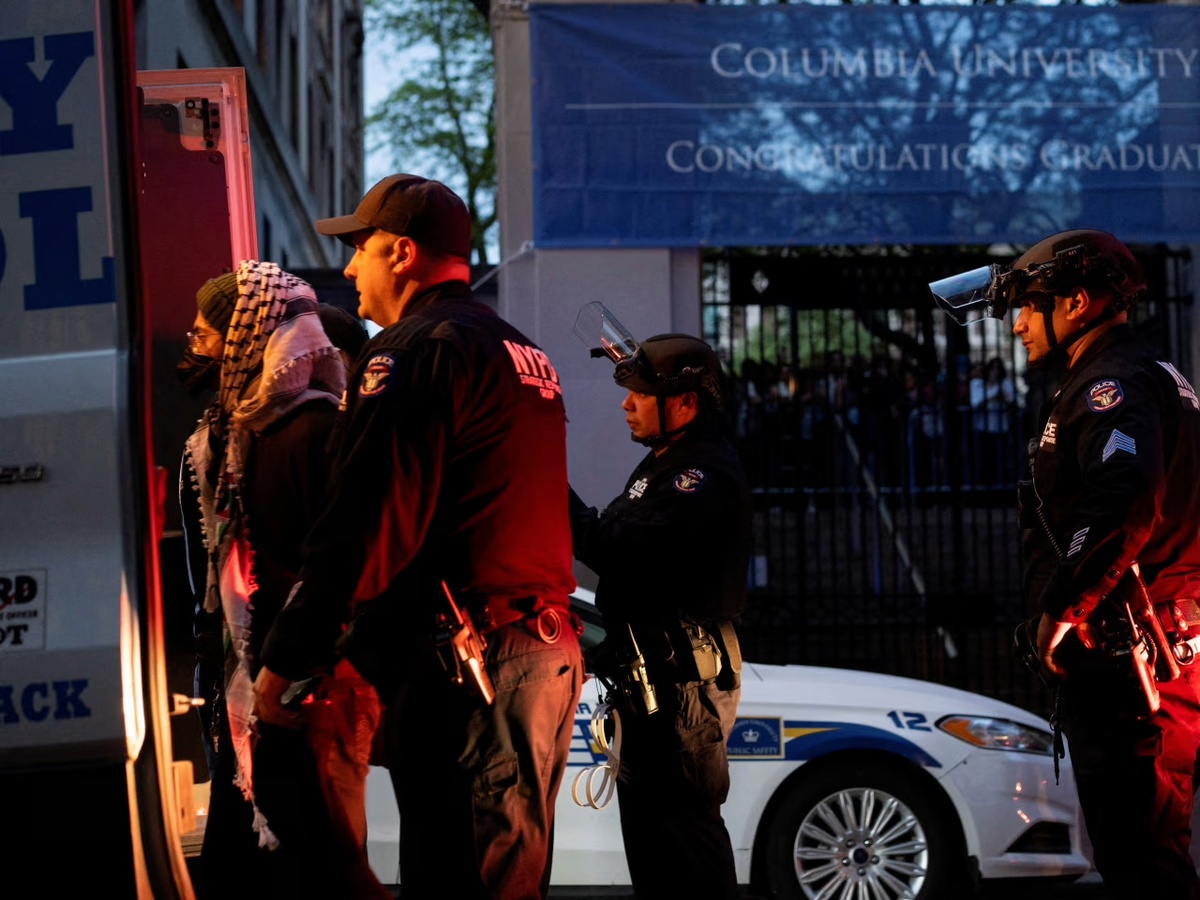Physical Address
304 North Cardinal St.
Dorchester Center, MA 02124
Physical Address
304 North Cardinal St.
Dorchester Center, MA 02124

On May 7, 2025, Columbia student protest suspensions were issued after dozens of pro-Palestinian demonstrators took over Butler Library. The university suspended more than 65 students and barred 33 others—some from Barnard College and others who were alumni—from setting foot on campus.
The group occupied the library reading room for nearly four hours. Masked and wearing keffiyehs, they raised Palestinian flags, declared the area a “liberated zone,” and graffitied phrases like “Columbia will burn” on school property.
Takeaway: The protest immediately disrupted the academic environment during finals week, triggering major disciplinary action.

Roughly 80 protesters were arrested after Columbia officials requested NYPD intervention. Most now face trespassing charges. A few may be charged with disorderly conduct. Two campus officers were reportedly injured during the standoff.
Students placed on interim suspension are barred from attending classes, campus activities, and graduation events. Columbia has not provided a timeline for lifting the suspensions, stating that further investigation is underway.
Takeaway: Columbia student protest suspensions come with immediate academic consequences, particularly for seniors.
The protest’s impact is now reaching Washington. Secretary of State Marco Rubio announced his office will review the visa status of students involved, opening the door to possible deportations.
The Trump administration previously cut $400 million in federal funding from Columbia over how it handled earlier pro-Palestinian demonstrations. That pressure appears to be ongoing.
Takeaway: Federal agencies are responding to campus protests with financial and immigration-related consequences.
Protesters demanded Columbia divest its $14.8 billion endowment from companies tied to Israel’s military activity and weapons manufacturing. They renamed the occupied room the “Bassel Al-Araj Popular University,” after a Palestinian activist killed in 2017.
This event follows a year of growing activism around the Israel-Gaza conflict. Columbia student protest suspensions reflect heightened institutional efforts to respond quickly.
Takeaway: Activist demands are intensifying, and universities are under pressure to respond swiftly and visibly.

Interim President Claire Shipman defended the decision to involve police, calling it “unfortunate but necessary.” She reiterated Columbia’s stance against violence and antisemitism.
The U.S. antisemitism task force praised the university’s response. Officials described the Columbia student protest suspensions as “a necessary measure to restore order and uphold campus values.”
Takeaway: Columbia and federal officials are publicly aligned in condemning the protest and supporting strict disciplinary measures.
The Columbia student protest suspensions follow one of the most significant demonstrations on campus in recent memory. With dozens arrested, disciplinary reviews underway, and possible visa revocations looming, the protest has quickly become a national flashpoint in the debate over campus activism and institutional accountability.
Daily News. No B.S. No Fluff. Just What You Need to Know.